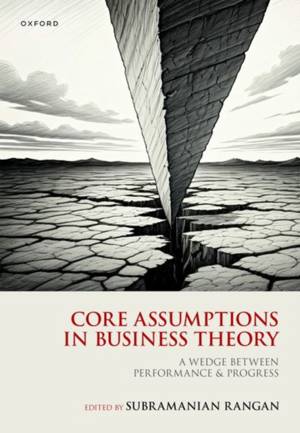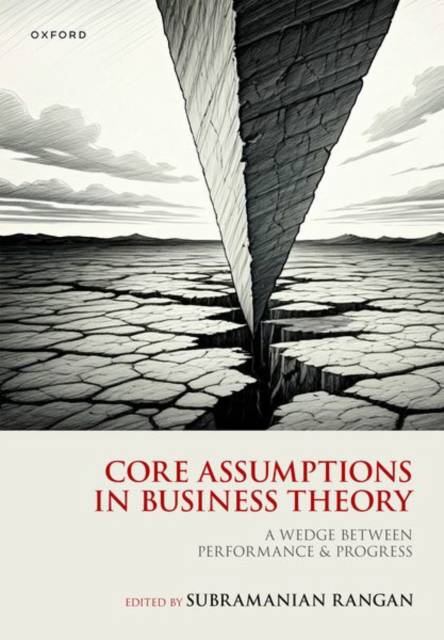
- Retrait gratuit dans votre magasin Club
- 7.000.000 titres dans notre catalogue
- Payer en toute sécurité
- Toujours un magasin près de chez vous
- Retrait gratuit dans votre magasin Club
- 7.000.0000 titres dans notre catalogue
- Payer en toute sécurité
- Toujours un magasin près de chez vous
Core Assumptions in Business Theory
A Wedge Between Performance and Progress
Subramanian Rangan
Livre relié | Anglais
249,95 €
+ 499 points
Description
The modern market-based economy generates wealth, but it lags on well-being; it has mastered efficiency, but struggles with equity; it boasts size, but falls short on sustainability. In other words, our economy delivers performance but neglects progress (i.e., well-being, equity, and sustainability). Many rightly call for tighter regulation, higher ("true") prices, and longer-term incentives. Others appeal to corporate purpose, shared value, and stakeholder-centricity. Beyond regulation and the practice of business, we must attend as well to education and the theory of business. In particular, we must look at business theory's core assumptions, whose weaknesses are long known. In an applied field such as business, where theory tends to be normative, flawed assumptions could act as a "wedge" cleaving apart performance and progress. In this volume, Subramanian Rangan brings together eminent social scientists and philosophers to explore core assumptions in each of the major fields of business-including economics, strategy, marketing, operations, decision science, leadership, governance, technology, and finance. This structured field-by-field reflection reveals and expands the bounds of our rationality. Core Assumptions in Business Theory proposes a revised profit function that integrates harm, outlines how economic actors may draw on moral philosophy to enact Pareto-equity (and not just Pareto-efficiency), suggests a two-stage rationality approach that can attend to well-being, and recasts marketing as consumer education and not merely demand promotion. With an emphasis on education rather than regulation of economic power, this volume argues that moral reasoning and moral roles can fruitfully supplement prudential reasoning and functional responsibilities. Such an evolution will enable our economy to be both modern and moral. This is an open access title available under the terms of a CC BY-NC-ND 4.0 International licence. It is free to read on the Oxford Academic platform and offered as a free PDF download from OUP and selected open access locations.
Spécifications
Parties prenantes
- Auteur(s) :
- Editeur:
Contenu
- Nombre de pages :
- 400
- Langue:
- Anglais
Caractéristiques
- EAN:
- 9780198944218
- Date de parution :
- 08-08-25
- Format:
- Livre relié
- Format numérique:
- Genaaid
- Dimensions :
- 181 mm x 251 mm
- Poids :
- 839 g

Les avis
Nous publions uniquement les avis qui respectent les conditions requises. Consultez nos conditions pour les avis.






